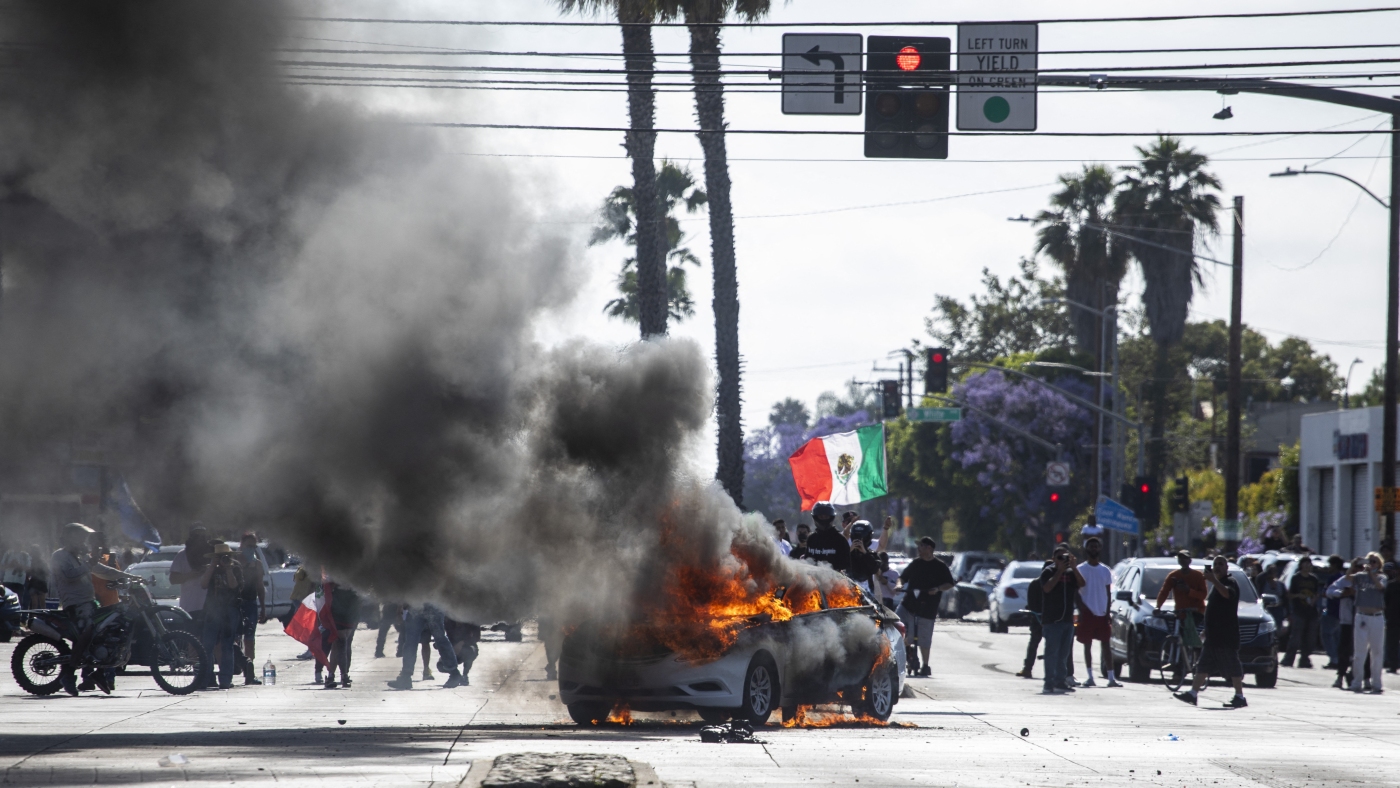Immigration Protests in Los Angeles: A Deep Dive into Conflict and Context
The recent immigration protests that swept through Los Angeles over a weekend drew national attention, crystallizing the city’s struggle with immigration enforcement, civil liberties, and political tension. Sparked by federal immigration raids and escalating into multi-day demonstrations met with law enforcement resistance and a controversial National Guard deployment, these events reveal layers of social complexity that are reshaping dialogues on immigration policy and community rights.
Triggering the Storm: Federal Raids and Community Reaction
At the heart of the unrest were federal Immigration and Customs Enforcement (ICE) operations that targeted immigrant populations across Los Angeles County. These raids culminated in over a hundred arrests within a week, a number that signaled an aggressive federal approach and sparked immediate outrage. The protests swiftly spread beyond downtown Los Angeles, notably grabbing attention in areas like Paramount, reflecting the raids’ broad reach and the widespread emotional impact on diverse communities.
ICE’s actions ignited not only public demonstrations but also an intensified discourse about the human consequences behind immigration enforcement. For many affected and their allies, these raids symbolized a violation of trust and security, propelling them onto the streets in defense of immigrant rights and dignity.
Balancing Act: Law Enforcement Tactics and Public Safety
Law enforcement agencies, primarily the Los Angeles Police Department and the County Sheriff’s Office, distanced themselves from direct immigration enforcement roles, focusing instead on maintaining order amid heightened tensions. Their efforts to clear streets and manage crowds, however, escalated into confrontations, particularly when protesters refused to disperse overnight. This clash resulted in dozens of arrests, revealing the friction between civil disobedience and institutional authority.
The sustained nature of these protests over several days highlights the protesters’ resolve and the difficulties faced by authorities attempting to keep peace without exacerbating conflicts. The legal and ethical tightrope walked by police forces underscores the challenges in managing mass demonstrations that intertwine public safety concerns with charged political sentiments.
The National Guard Controversy: A Symbol of Federal-State Discord
Adding a provocative layer to the weekend’s turmoil was President Trump’s decision to deploy the National Guard to Los Angeles — a move reportedly not endorsed by California’s governor. This federal intervention underscored the deep political rifts between state and federal governments over immigration enforcement strategies.
The National Guard’s presence at strategic federal locations like the Los Angeles Federal Building introduced a starkly militarized dimension to the protests. This heightened symbolism inflamed protester sentiment, portraying the federal response as confrontational and heavy-handed, thus deepening the divide and complicating interactions between civilians and authorities.
A Nation Divided: Immigration as an Ongoing Cultural and Political Battleground
The Los Angeles protests mirror the broader national schism on immigration—where debates are as much about humanitarian values as they are about legality and security. Protesters’ calls for compassionate reform contrast with the federal emphasis on law enforcement and deterrence. This ideological chasm reflects competing narratives: one that prioritizes community solidarity and human rights, and another that stresses rule of law and border integrity.
Within this contest, Los Angeles emerges as a microcosm. Its vibrant and diverse population places it at the forefront of immigration issues, while the protests reveal the emotional depth and political stakes attached to immigration policy across the country.
An Artistic Counterpoint: The Tony Awards Amid Social Turmoil
Amid the weekend’s upheaval, the 78th Annual Tony Awards unfolded in New York, offering a cultural counterbalance to the social unrest. Hosted by Cynthia Erivo, the ceremony celebrated theatrical excellence without a dominating production, providing a serene platform for artistic expression against the backdrop of nationwide protests.
This juxtaposition illuminates the layered fabric of societal experience—how moments of celebration and cultural affirmation coexist alongside fervent calls for justice and change, highlighting the diversity of human responses to contemporary challenges.
Reflecting on an Unsettled Moment
The weekend-long protests in Los Angeles are more than episodic events; they reflect enduring tensions surrounding immigration policy, civil rights, and the nature of governance in a democratic society. The confrontations between protesters and federal agents, the contentious National Guard deployment, and the widespread community response illustrate a city—and a nation—grappling with profound questions about identity, authority, and justice.
As Los Angeles and the United States at large navigate these turbulent waters, the protests serve as a powerful reminder of the ongoing dialogue between enforcement and empathy, federalism and local autonomy, repression and resistance. They underscore the vitality of public protest not only as an expression of dissent but also as a potential catalyst for societal reflection and reform.

